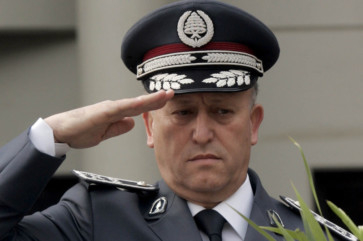
Beirut: Ashraf Rifi, the Minister of Justice who resigned from the government on February 21, 2016, and remains a major critic of Hezbollah for stripping Lebanon of what remained of the country’s constitution, launched a major media assault on those he claimed were mounting a gradual coup d’etat.
Speaking on the eve of the third commemoration of the Taqwah and Salam mosques in Tripoli on August 23, 2013, which killed 47 and injured over 500, Rifi hammered that free Lebanese citizens “will carry on with the confrontation against the approach that is destroying the State and the values of the republic.”
The reference to, and rejection of, the “package deal” — which Speaker Nabih Berri proposed to resolve three major concerns simultaneously — was a particularly poignant attack.
Rifi affirmed that holding parliamentary elections under a new electoral law before electing a new president and forming a new government, all three of which were the gist of Berri’s package, was unconstitutional.
The former head of the Internal Security Forces with decades of service to the nation’s security institutions rejected what he termed as a “coup against the constitution” that, he affirmed, “disguises itself as a so-called package deal or reveals its true face through seeking to torpedo the Taif Accords.”
Rifi hammered that should it be necessary, he and his backers — a large Sunni and Christian coalition that is frustrated with the Future Movement and the Free Patriotic Movement — would not “hesitate to use all peaceful means to thwart the coup and our people are ready to heed the call, the same as they did on February 14 and March 14, 2005.” It was unclear whether his calls would be limited to peaceful means especially as internal tensions among various communities were on the rise.
As in the past, and referring to Hezbollah without naming it, Rifi reaffirmed that he would not allow the “mini-state” to “give itself the right to appoint a president, name a premier, usurp the parliament, and turn institutions into paralysed puppets.”
This last reference was a direct reaction to Hezbollah chief Hassan Nasrallah’s latest offer to appoint Sa’ad Hariri Prime Minister if the latter abandoned Sulaiman Franjieh and supported Michel Aoun for the presidency.
Rifi perceived the offer as a trap disguised as a “deceitful settlement” that, he clarified, was nothing new since Lebanese elites were familiar with ephemeral settlements that seldom accomplished their objectives.
Such pronouncements, confirmed the Minister of Justice, were a cover for “pouncing on the State and usurping it and for changing equations through the force of arms.”
Rifi did not mince his words during the Sunday press conference as he reiterated his determination not to be “intimidated by weapons and threats as long as we defend the right of the Lebanese to preserve their State and its institutions.”
Notwithstanding oft-repeated claims that Lebanon would enter a dark chapter by the end of this year if a package solution is not adopted, few observers believed that elites were ready to elect a head-of-state, the first necessary step to restore legitimacy and order to current political and economic doldrums.
Speaker Berri was adamant that his proposal was the only game in town, and reaffirmed to his visitors in recent weeks that failure to agree on a new electoral law would essentially mean that the next parliamentary elections, scheduled for Spring 2017, would be held under the 1960 law, which everyone loathes. Such an election, the most realistic scenario if a third extension is ruled out, will translate in a new parliament that will resemble the current one — with minuscule changes — that, in effect, will also mean that Lebanon is condemned for more of the same.












